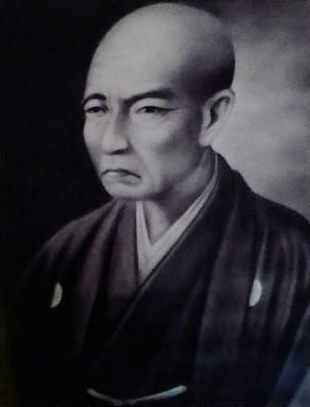Yamamoto Tsunetomo frasi celebri
Frasi sulla morte di Yamamoto Tsunetomo
Yamamoto Tsunetomo Frasi e Citazioni
Hagakure
Hagakure
“«In mezzo a ogni singolo respiro, dove i pensieri vani non trovano appiglio, lì è la Via».”
Hagakure: All'ombra delle foglie - Precetti per un Samurai
道). Invece, chi ha studiato Confucianesimo o Buddhismo potrà ritenere che la via del Samurai sia una "via" irragionevole. Solo se studi tutte le varie "vie" potrai esser in grado, prima o poi, di capire che cos'è veramente ragionevole. (citato in Mishima 1996)
libro Hagakure. Il codice segreto dei samurai
libro Hagakure. Il codice segreto dei samurai
Yamamoto Tsunetomo: Frasi in inglese
“Respect, Honesty, Courage, Rectitude, Loyalty, Honour, Benevolence”
Origine: Hagakure: The Book of the Samurai
As translated by William Scott Wilson. This first sentence of this passage was used as a military slogan during the early 20th century to encourage soldiers to throw themselves into battle. Variant translations:
Bushido is realised in the presence of death. In the case of having to choose between life and death you should choose death. There is no other reasoning. Move on with determination. To say dying without attaining ones aim is a foolish sacrifice of life is the flippant attitude of the sophisticates in the Kamigata area. In such a case it is difficult to make the right judgement. No one longs for death. We can speculate on whatever we like. But if we live without having attaining that aim, we are cowards. This is an important point and the correct path of the Samurai. When we calmly think of death morning and evening and are in despair, We are able to gain freedom in the way of the Samurai. Only then can we fulfil our duty without making mistakes in life.
By the Way of the warrior is meant death. The Way of the warrior is death. This means choosing death whenever there is a choice between life and death. It means nothing more than this. It means to see things through, being resolved.
I have found that the Way of the samurai is death. This means that when you are compelled to choose between life and death, you must quickly choose death.
The way of the Samurai is in death.
I have found the essence of Bushido: to die!
Hagakure (c. 1716)
Origine: Hagakure: The Book of the Samurai
Contesto: The Way of the Samurai is found in death. When it comes to either/or, there is only the quick choice of death. It is not particularly difficult. Be determined and advance. To say that dying without reaching one's aim is to die a dog's death is the frivolous way of sophisticates. When pressed with the choice of life or death, it is not necessary to gain one's aim.
We all want to live. And in large part we make our logic according to what we like. But not having attained our aim and continuing to live is cowardice. This is a thin dangerous line. To die without gaining one's aim is a dog's death and fanaticism. But there is no shame in this. This is the substance of the Way of the Samurai. If by setting one's heart right every morning and evening, one is able to live as though his body were already dead, he gains freedom in the Way. His whole life will be without blame, and he will succeed in his calling.
“As everything in this world is but a sham, Death is the only sincerity.”
Hagakure (c. 1716)
“A faultless person is one who withdraws from affairs. This must be done with strength.”
Hagakure (c. 1716)
“If you are slain in battle, you should be resolved to have your corpse facing the enemy.”
Hagakure (c. 1716)
